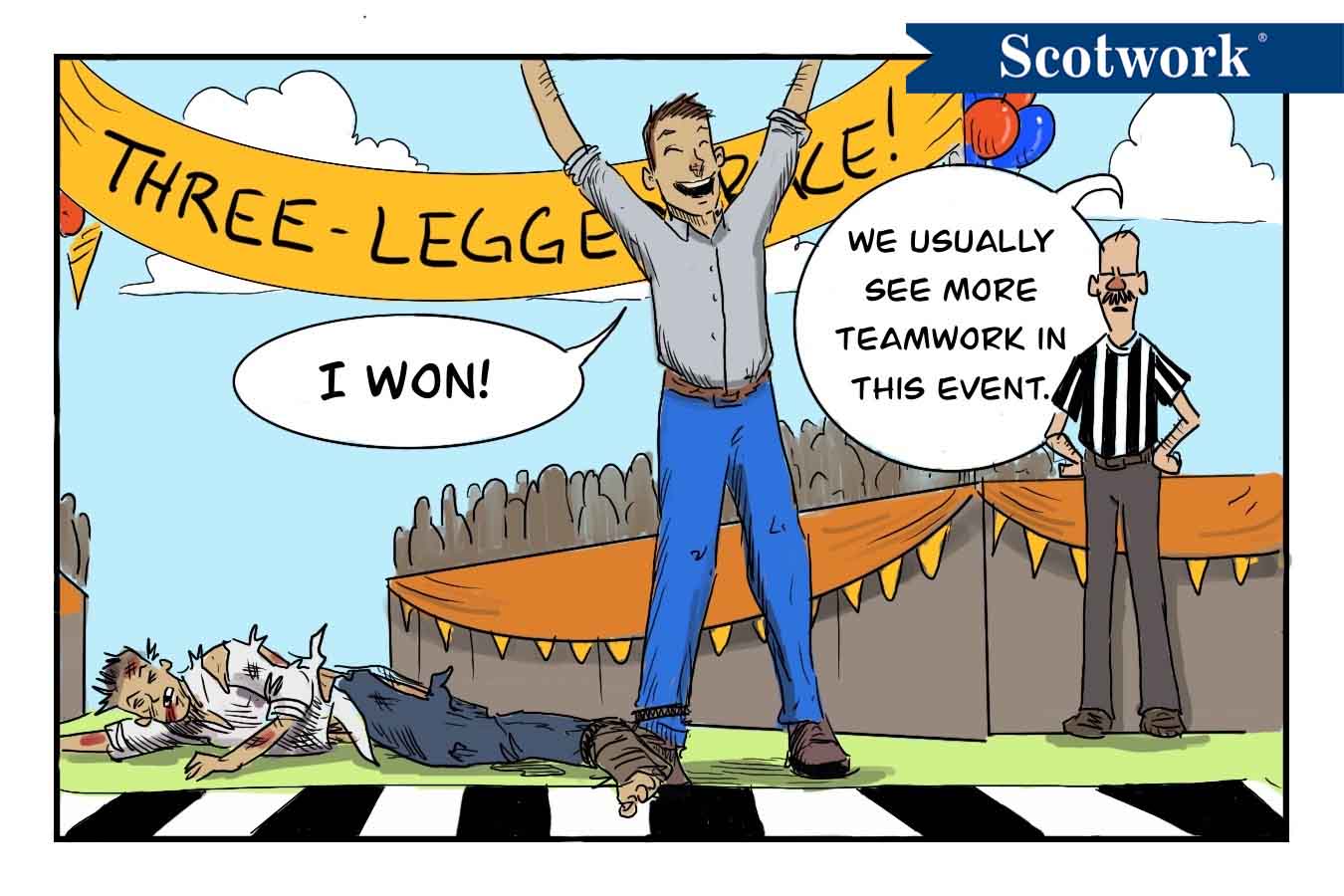November 4, 2025 was an unusual Election Day. Typically, Election Day after a Presidential contest is a non-event — one that barely gets covered in the news. But not this one. Leading up to the election, signs went up and ads went out to the familiar refrain of “us vs. them.” And people lined up to cast their vote. No matter which side you’re on, one thing’s clear: Americans care deeply about the direction of their communities and their country.
I was inspired by the passion, conviction, and participation that was on full display. But something else was on display, too — something less inspiring. When collaboration disappears, competition fills the void. When we stop working with one another, we start working against one another.
That’s not a political statement; it’s a human one.
The Shift from Solving to Winning
Election season is a fascinating study in human behavior. At its best, it’s democracy in action, which is a loud, messy, collective attempt to steer the future. But it’s also a reminder of what happens when collaboration gives way to competition. People stop asking, “How can we solve this together?” and start asking, “How can I make sure they lose?”
It’s why many of us feel like we’re voting against something instead of for something.
The irony is that the energy spent trying to defeat “the other side” could be spent fixing problems both sides care about. But once we’ve drawn the line, we double down. We dig in. We work harder to prove the other side wrong than we do to make things right.
It’s Not Just Politics
If that sounds familiar, it’s because the same thing happens in business.
Departments compete for resources. Teams campaign for their ideas. Leaders protect their turf instead of sharing it. Meetings start to feel more like debates than discussions. Negotiators focus more on winning than creating a deal that both sides can support.
Soon enough, everyone’s running their own campaign, building alliances, spinning data, and counting votes instead of finding solutions. The organization starts to look less like a team and more like a small-scale election cycle that never ends.
In politics, the cost of that division is gridlock, which we’re seeing right now as the government continues its record-long shutdown. In business, it’s lost opportunity. In a negotiation, it’s no deal. Creativity that could’ve gone toward innovation gets consumed by infighting. Collaboration that could’ve made everyone stronger gets replaced by quiet resentment. And before long, no one’s celebrating wins; they’re just celebrating when the other side loses.
Winning Isn’t the Same as Progress
The truth is, “winning” and “progress” aren’t synonymous. You can win the argument and lose the relationship. You can win the meeting and lose the momentum. You can win the negotiation and still walk away with less than you could’ve achieved together.
Real progress happens when people look past the campaign and focus on the common good, whether that’s a nation, a company, or a team.
A Vote for Collaboration
We don’t need to wait for another election cycle to change direction. Collaboration isn’t about giving in; it’s about giving everyone a reason to stay in. It starts with a choice: to listen longer, argue less, and look for progress that makes win-win possible.
So today, while the pundits are pontificating on what this last election means, maybe we can take a more subtle lesson from the noise: When we refuse to collaborate, the only thing we elect is more division.
That’s a campaign no one wins.

